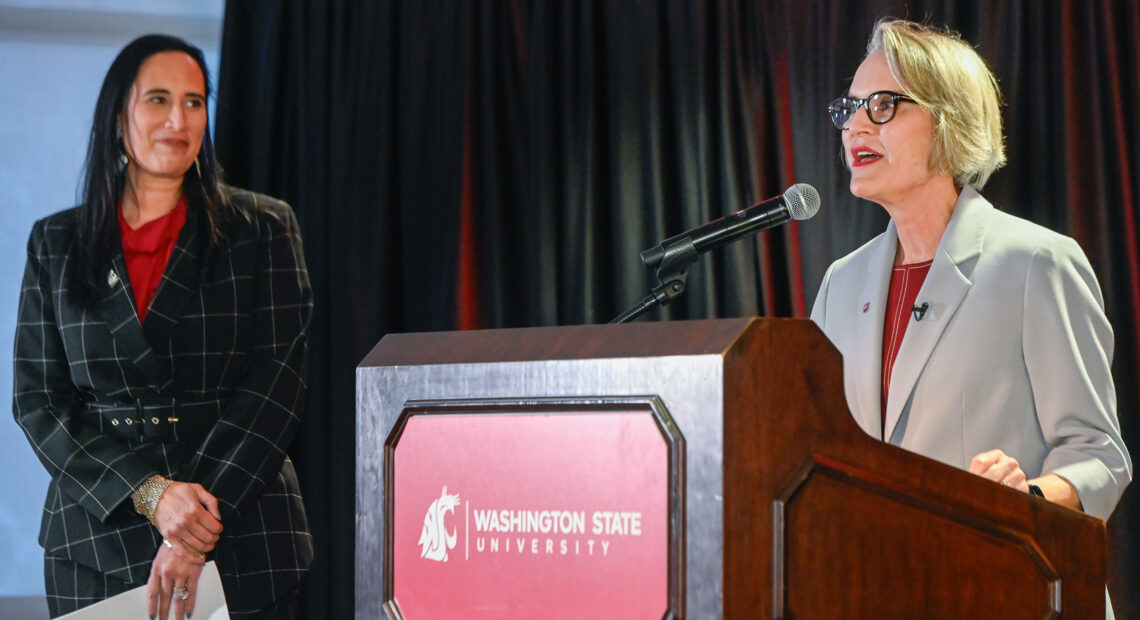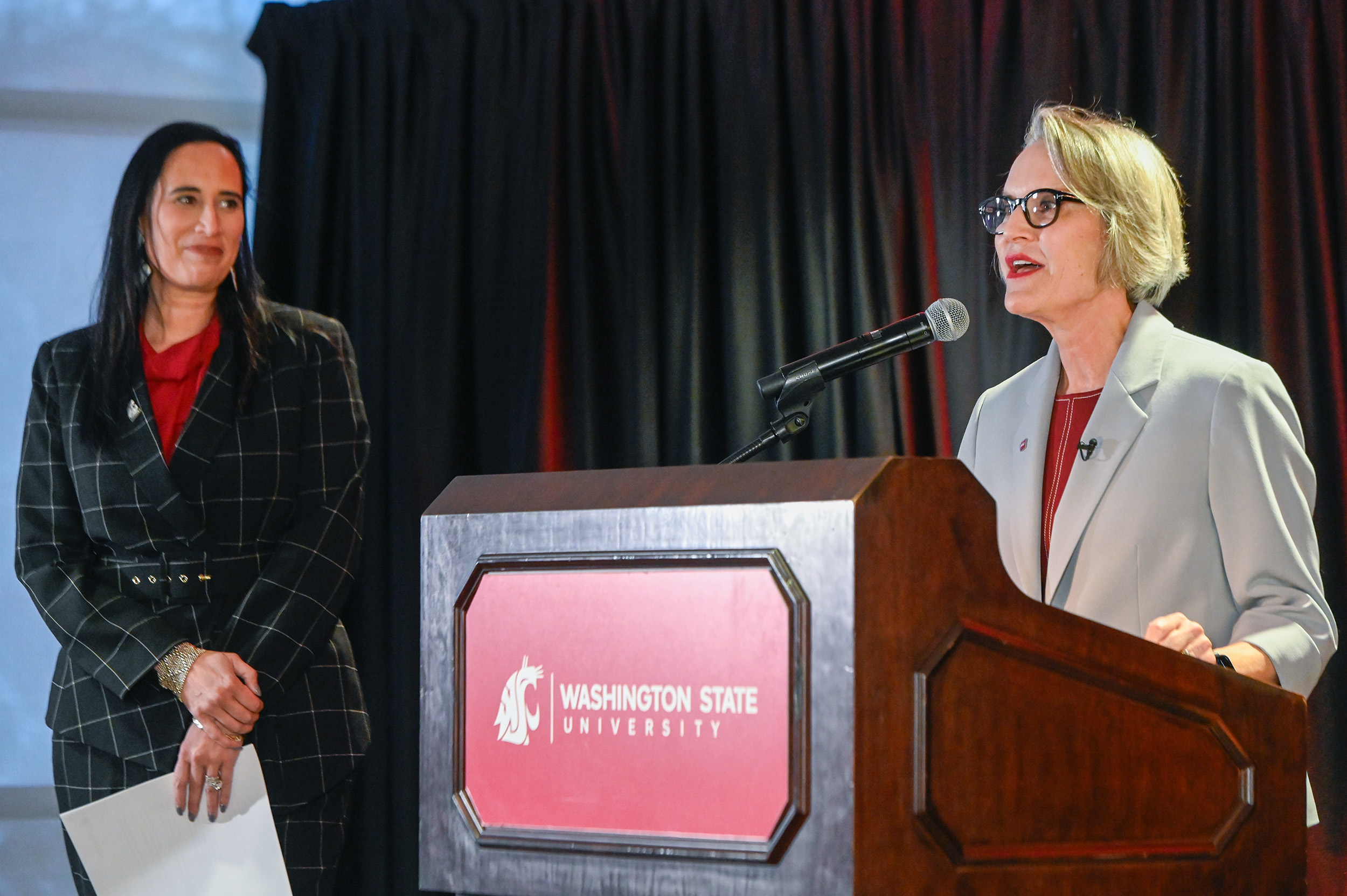
Washington State University Regents appoint incoming WSU president

Listen
(Runtime 0:53)
Read
Elizabeth Cantwell will serve as the Washington State University’s 12th president starting April 1. The university’s Board of Regents voted on Thursday.
Cantwell, who was hired with an annual base salary of $735,000, comes to WSU from Utah State University, where she oversaw 30 campuses system-wide.
During her tenure at Utah State, she led the university with a $1.3 billion annual operating budget, including $495 million in sponsored research expenditures, said Lisa Keohokalole Schauer, chair of the Board of Regents.
Cantwell also held leadership positions in research and innovation at the University of Arizona and Arizona State University, and has worked in National Security, with work tied to missions in energy, defense, and space exploration.
Cantwell will be the first woman president in the WSU’s 135-year history. She inherits the position from WSU President Kirk Schulz during a tumultuous time for higher education institutions, with recent executive orders threatening research funding, affirmative action, and diversity, equity and inclusion programs.
Chair Schauer said some of those changes would make it more challenging to meet many of the goals and objectives the university has prioritized.
“(We are) facing changes and implications to our research to our communities that require thinking that’s broad and big, and a commitment to our values,” she said. “I just want to acknowledge that while this is an exciting moment, there is a lot happening outside of this room.”
Cantwell emphasized the importance of WSU as a land-grant university in serving the students and public at large, saying the university was at a “pivotal moment” that presented both challenges and opportunities.
“As we’re all kind of going into that future of higher ed, where you can see the kind of bumps in the road, and some of them are pretty big bumps,” she said, “I truly believe that land grants will be enduring — we have to be here in a hundred years.”
Cantwell said the university will need to find ways to branch out from what it’s always done to meet the needs of students.
“Higher ed has been the subject of a lot of skepticism over the last few years. Increasing costs to students, increasing, just, cost of delivering what we deliver. The in-person model has been, I think it’s fair to say, disrupted by technology,” she said. “I think we’re probably really just at the very beginning of, ‘What does that mean?’”
Cantwell pointed to the origins of land grant universities, which sprang up during a time of immense social and political upheaval, and technological revolution. Land grant universities, Cantwell said, made the benefits of that revolution accessible to more people.
“We will harness the land grant mission. We will define what it means to be a modern land grant. We will do that together,” she said.
She also said she plans to do listening sessions to learn more as she steps into her role as president.
“You cannot come into a new institution saying, ‘I know exactly what to do.’ You simply can’t. I have not lived in the state of Washington,” she said.
Outgoing president Kirk Schulz will continue to work with the senior leadership team and Cantwell as an advisor to the president, ending his term as President on March 31.
Cantwell said she was excited to start work and connect with the university community.
“I cannot wait for the day that I start and I’m able to actually just walk around a lot more without being guided,” she said. “One of the reasons that I really wanted to start as soon as possible is I really want to be here before the end of the semester so I can actually be here when students are here.”















